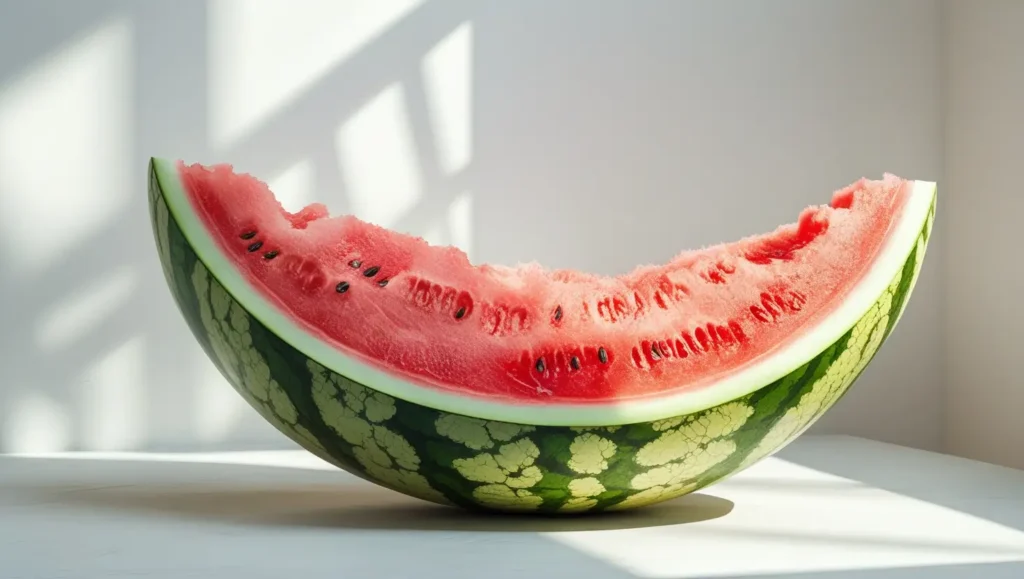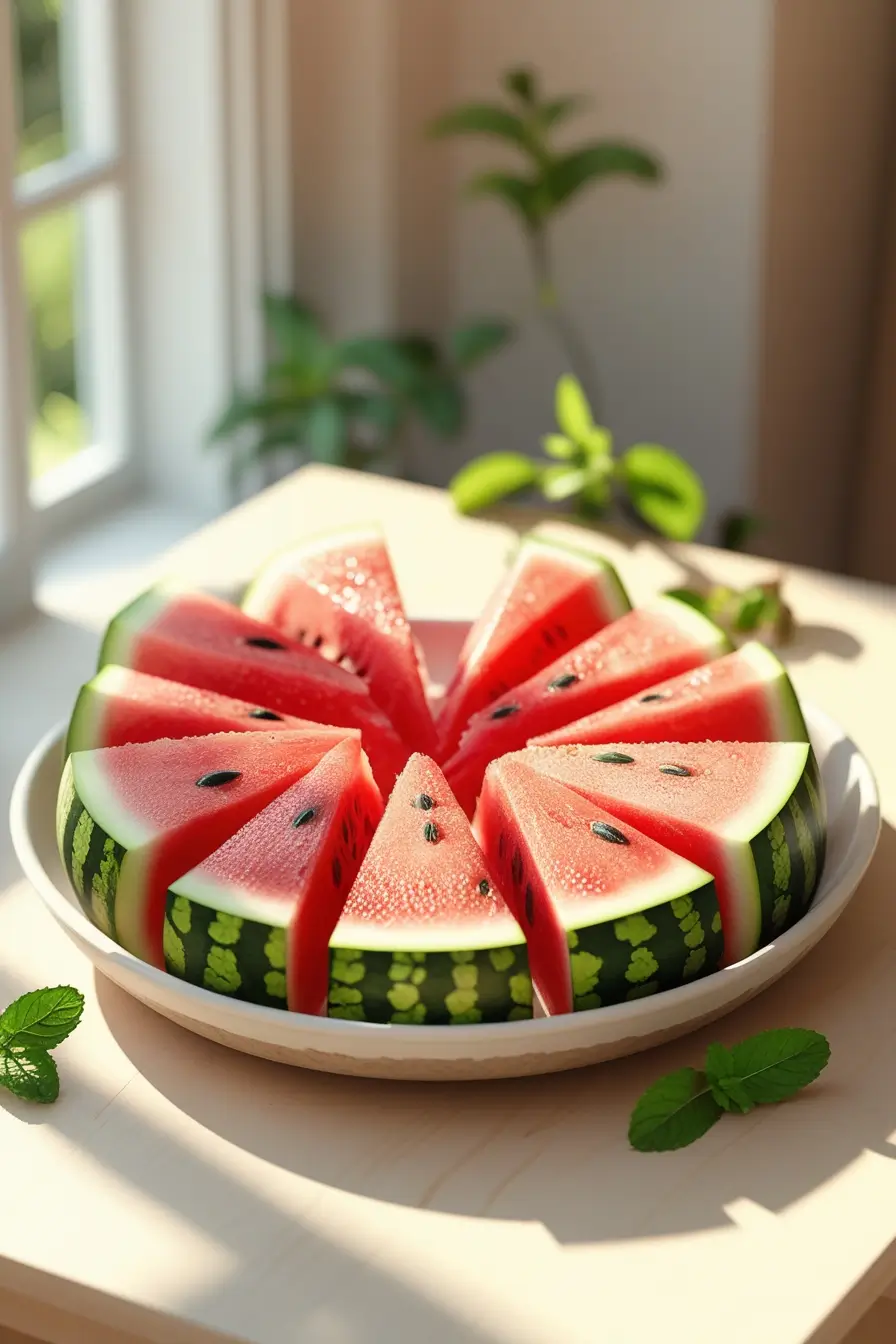Refreshingly Healthy: Watermelon Nutrition Facts That Will Surprise You
A Summer Slice of Joy — Why Watermelon Nutrition Facts Is More Than Just a Juicy Treat
Picture this: it’s a hot summer day, your skin warm from the sun, and in your hand is a slice of cold, juicy watermelon. It’s not just a nostalgic bite of summer—it’s a nutritional powerhouse that your body will thank you for. If you’ve always thought of watermelon as just water and sugar, you’re in for a surprise. This humble fruit packs a punch when it comes to nutrients that can benefit your health in unexpected ways.
In this article, you’ll uncover watermelon nutrition facts that go beyond the basics and discover why this refreshing treat deserves a regular spot in your diet.
Watermelon at a Glance: Quick Nutrition Facts
Let’s start with the numbers. Here’s what you get in every 100 grams of raw watermelon:
| Nutrient | Amount per 100g | % Daily Value |
|---|---|---|
| Calories | 30 kcal | Low |
| Water Content | 91% | Very High |
| Vitamin C | 8.1 mg | 14 % |
| Vitamin A | 569 IU | 11% |
| Potassium | 112 mg | 3% |
| Lycopene | ~4,500 µg | High |
| Fiber | 0.4 g | Low |
Key Takeaways:
- Low in calories and fat
- Extremely hydrating
- Packed with antioxidants like lycopene
- Provides essential vitamins and minerals

Table of Contents
Surprising Health Benefits of Watermelon
Boosts Heart Health
You might not expect this summer fruit to be a heart hero, but it is. Watermelon contains lycopene, a potent antioxidant that helps reduce bad cholesterol levels and supports artery health. Even more impressive? The citrulline in watermelon may improve blood flow and reduce blood pressure.
Supports Skin & Hair Health
Your skin and hair love watermelon. The vitamin A supports cell regeneration, while vitamin C is key for collagen production, keeping your skin firm and youthful. Do not be astonished if your radiance begins from within.
Helps with Muscle Recovery
If you hit the gym often or live an active lifestyle, watermelon should be part of your post-workout routine. Citrulline can help reduce muscle soreness and improve recovery, making it an ideal natural supplement.
Promotes Better Digestion
Watermelon is 91% water. That’s a big win for digestion. While it has only a small amount of fiber, the water content helps move things along in your gut, preventing constipation and aiding overall digestive health.
Watermelon Varieties and Their Nutritional Differences
You might think all watermelons are the same, but there are several varieties, each offering slightly different nutrients.
Common Types of Watermelon:
- Seeded: Traditional and richer in phytonutrients
- Seedless: Convenient and just as nutritious
- Mini (Personal) Watermelons: Perfectly portioned and sweet
- Yellow/Orange-Fleshed Watermelons: Higher in beta-carotene
While red-fleshed watermelon is high in lycopene, yellow and orange types bring extra beta-carotene, which your body converts into vitamin A. Choosing different varieties can help you get a wider range of antioxidants.
How to Include More Watermelon in Your Diet
There are so many ways to enjoy watermelon besides eating it plain. Here are a few ideas to make it even more exciting.
Fresh and Raw
- Add watermelon cubes to a fruit salad
- Present chilled slices accompanied by a dash of salt or a squeeze of lime.
- Combine with cucumber and mint for a refreshing detox snack
Smoothies & Juices
- Blend watermelon with cucumber and a splash of lemon juice
- Create a post-workout watermelon protein smoothie with Greek yogurt and ice
Refreshing Watermelon Recipes
Watermelon Mint Salad Recipe
| Ingredient | Quantity |
|---|---|
| Watermelon cubes | 2 cups |
| Fresh mint leaves | ¼ cup |
| Feta cheese | ½ cup |
| Olive oil | 1 tbsp |
| Lime juice | 1 tbsp |
| Salt & Pepper | To taste |
Directions:
- Toss all ingredients together in a bowl.
- Chill for 15 minutes before serving.
- Garnish with extra mint if desired.
Creative Uses
- Freeze watermelon juice into popsicles
- Add diced watermelon to your salsa
- Consider grilled watermelon steaks for a smoky flavor variation.
Who Should Be Cautious with Watermelon?
While watermelon is safe for most people, there are a few exceptions you should know about.
Diabetics: Mind the Sugar
Watermelon has a high glycemic index (around 72), but a low glycemic load, which means it doesn’t spike your blood sugar as much as you might think. Still, if you’re diabetic, it’s best to enjoy watermelon in moderation and pair it with protein or healthy fat.
Sensitive Stomachs
Watermelon contains FODMAPs, which can ferment in your gut and cause bloating for those with IBS or similar digestive issues.
FAQs About Watermelon Nutrition Facts
Is watermelon good for weight loss?
Absolutely. It’s low in calories, fills you up, and satisfies your sweet tooth naturally.
Does watermelon have too much sugar?
It has natural sugars, but it’s also low in calories. Unless you’re eating half a melon in one sitting, you’re probably fine.
Can you eat watermelon every day?
Yes, in reasonable portions. It can be part of a balanced diet and supports hydration.
What vitamins are in watermelon?
Mainly vitamin A, vitamin C, and small amounts of B vitamins like B6.
Conclusion — The Hidden Power of Watermelon
Watermelon isn’t just a summer indulgence—it’s a smart choice for your health. From protecting your heart to helping your muscles recover faster, this fruit does it all while keeping you hydrated and refreshed. So next time you’re grocery shopping, toss a watermelon in your cart. Your taste buds and your body will thank you.
Ready to Transform Your Health, One Slice at a Time?
Start experimenting with watermelon recipes this week. Share your favorite watermelon dish or discovery in the comments—and don’t forget to pass this article along to a fellow watermelon lover. Your journey to better health might just start with a single slice!

